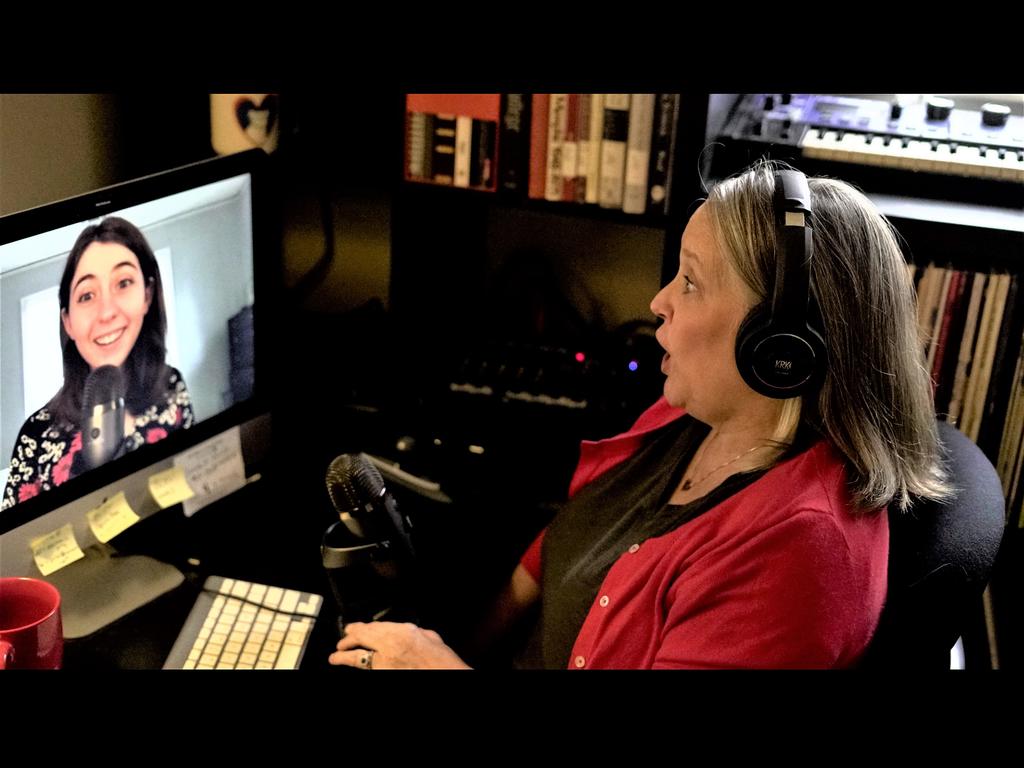“Have you ever wondered who your dorm was named for? Why there’s a water fountain dedicated to a dog named Cujo? We are here to help,” says interlibrary loan/information services librarian Kenan Padgett in the introduction of Lynx to the Past.
The new podcast, produced by Rhodes College’s Information Services staff, uses the college’s digital and physical archives to tell stories about the campus’ history, mysteries, and legends.
Padgett and archivist Bill Short ’71, circulation supervisor Caitlin Gewin ’16, and history student Lillian Brimberry ’21 have rummaged through old documents and images to present a carefully researched and fun podcast.
“One day during winter break, I was listening to a podcast made by the State Archives of North Carolina and thought, Wow! We have so many stories to tell about Rhodes. We have to do this!” says Padgett. She consulted with instructional technologist Corey Phillips on how to get started and also enlisted the help of Gewin. “Caitlin is always up for a challenge. She taught herself how to use the Audacity audio software and has edited all the podcast’s scripts and audio recordings.”
The first two episodes of Lynx to the Past focus on the origins of the Whiteball competition, the Rhodes Seal located in Southwestern Hall, and the bronze lynx statue in front of the Rhodes Tower.
“Before looking into the history of the seal, I had never looked closely at its design and never knew the story behind it. All I knew was to never cross the seal, or else I would not graduate,” says Brimberry, referring to the traditional Rhodes legend about the seal. “Now, I will be able to fully appreciate the seal and what it represents.”
The theme music for the podcast is an arrangement based on the “Lynx March.”
“Here’s a fun fact,” says Padgett. “‘The Lynx March’ is often attributed to Prof. Charles Mosby ’51, but according to a document we discovered in the archives, it was actually composed by Jimmy Cobb ’50 in Mosby’s dorm room!”
Brimberry, who is a Rhodes Student Associate in the interlibrary loan office and whose concentration is public history, received academic credit for working on the podcast all summer. “I spent most of my days researching, writing, and recording for it, and each day I learned something new about the history of Rhodes,” she says. “I have thoroughly enjoyed this unique approach of looking at history. It has not only benefited my academic career, but also my personal development. I am grateful for Kenan and Caitlin for giving me this opportunity and helping me along the way.”
Padgett says her hope for the podcast is that it inspires listeners to look around campus and see all the little details that make Rhodes so special. “I have researched almost every house I have every lived in and traced the stories of the people who have lived there. Rhodes has been my second home for almost 20 years, and I am becoming just as obsessed with its history. I think we are all a little homesick for campus right now, and this makes it feel a little bit closer.”
Those who would like to share their stories for future episodes of Lynx to the Past can email lynxtothepast@rhodes.edu.
